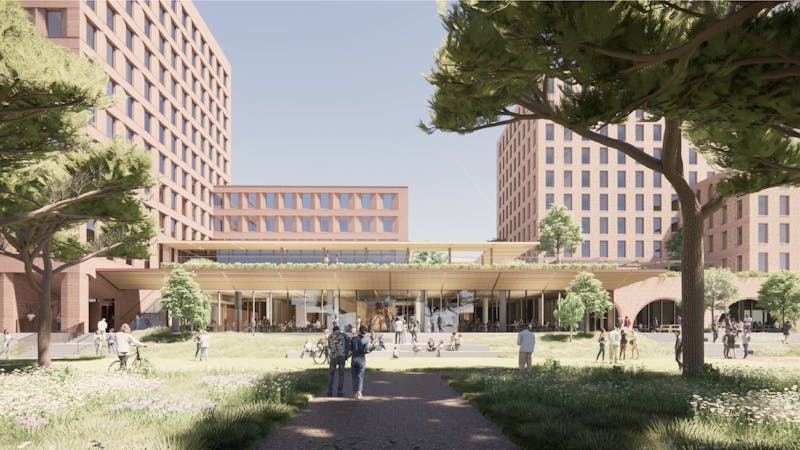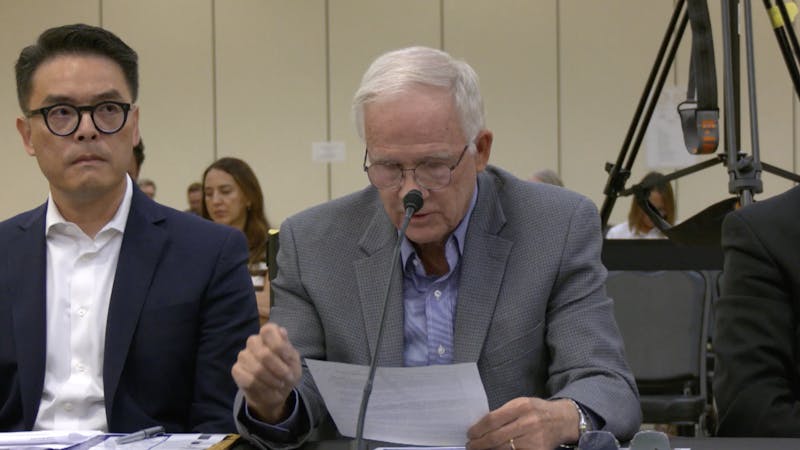Administration, students at disconnect in 2010
With 2010 coming to an end, the Thresher would like to reflect on the plethora of incidents over the last year which have hindered the success of the administration in terms of its relationship with the student body. As a small university, we have the rare opportunity of having administration and student body present a unified, synchronized front in which the desires of each party are mutually understood. However, over the past year it seems that a great disconnect has emerged between the administration's actions and the students' desires.Needless to say, this shift toward disconnect is epitomized by the KTRU debacle. The nature of secrecy and lack of communication surrounding this business deal which dealt a severe blow to a major student organization was simply unprecedented. The administration could have, quite frankly, not cared about student desires less than they did during the KTRU sale. There was no student input in the decision because they was simply no opportunity to contribute at all. While President David Leebron said the unilateral process of the KTRU decision was simply a one-time happening, other occurrences around the university suggest a potentially dangerous trend forming to the contrary.
The issue of Salento receiving the Brochstein Pavilion contract represents a similar situation on a smaller scale. While Coffeehouse sought to submit a proposal to take control of Brochstein, their request was scarcely considered before being rejected on the premise of Coffeehouse not having a liquor license. The university was clearly acting solely on its own ambitions. A great number of students would have preferred Coffeehouse to win the bid; however, they were not even considered, let alone selected.
In its distribution of new college budgets, the students were once again neglected. McMurtry and Duncan Colleges have greater expenses with no extra money. This situation means that upward of 20 percent of the student body is stuck in a situation where their college can't provide the amenities and services of other established colleges.
On the judicial front, RUPD crackdowns this year have come as a complete surprise to most returning students. Without warning and without consistency, RUPD officers' actions on weekend nights this year very broadly range from quickly issuing MIC's to kindly offering students rides back to their home colleges. It seems that protocol has been lost among the hiring of new officers and students don't know what to expect from RUPD anymore. A university service present for the safety of its students is quickly losing credibility among these students. This issue is one that is just coming to the forefront and will undoubtedly be an escalating battle next semester.
Despite this litany of woes, the Thresher does not want to paint the administration as an evil entity, simply a forgetful one. Once the administration is prodded by the student body to take their opinions into account, the administration becomes a pleasant and cooperative body. For example, the hours of Brochstein have been expanded, the KTRU Committee for allocating the sale money was formed, and the Beer Bike track is at last receiving a renovation - all on student request.
However, looking forward to the new year, the Thresher would like to see a new attitude from the administration - perhaps one that seeks "permission" before "apology" from its students more often.
More from The Rice Thresher

Rice announces Chao College as 12th residential college
Rice announced that the 12th residential college will be named Ting Tsung and Wei Fong Chao College Aug. 19. The college, set to open in fall 2026, will contain nearly 300 on-campus beds.
Dining access fund announced following on-campus unlimited meal swipes
Rice announced new food assistance programs on Tuesday to account for the controversial change in the on-campus meal swipe plan.

Rice disaster prediction model discussed at hearing on deadly Central Texas floods
The House and Senate Select Committees on Disaster Preparedness and Flooding held a hearing on July 31 in Kerrville to address the deadly July 4 flooding in Central Texas. The flooding along the banks of the Guadalupe River killed 108 people, including 37 children. In the charged hearing, Texas lawmakers and flood survivors criticized the local response to the disaster.


Please note All comments are eligible for publication by The Rice Thresher.